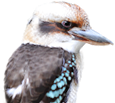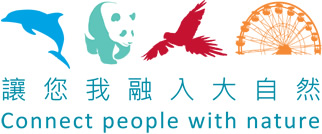(Hong Kong – 26 October 2011) The Centre for Health Protection confirmed on 25 October 2011 that one staff member of the Ocean Park Bird Department was diagnosed with a Chlamydia infection, a disease usually contracted through direct contact with faeces of infected birds. He was responsible for taking care of 13 newly acquired birds undergoing quarantine at the Park’s quarantine center, which is located away from guest areas. This staff member has recovered fully and resumed work earlier.
The veterinary team identified a Yellow-Crowned Amazon as infected with Chlamydia and this bird was subsequently enthanized, as it failed to respond to treatment and developed other complications that affected its quality of life.
The birds were purchased from a pet shop in Wanchai by the Park in Hong Kong, and one bird was identified as infected with the disease after extensive blood tests were carried out. These precautions are normal quarantine procedures for newly acquired animals in the Park, and every new animal undergoes such quarantine before they are moved into the Park’s exhibition collection.
All members of the Park’s Bird and Veterinary Departments have been briefed and to date, no other cases of related sicknesses have been found. The daily operation protocols for handling birds were also tightened, including requiring all staff members who come into contact with quarantine birds to use N95 surgical masks, wear airtight goggles, disposable jumpsuits and gloves. We have also increased the frequency of footbath replacement and daily site disinfections.
Ocean Park has being displaying birds and avian species to the public through exhibits and shows since its inception in 1977. Currently, Ocean Park maintains 906 birds from 100 avian species in its collections, which are accommodated throughout the Park’s aviaries. The collections of birds are observed and checked daily by their keepers and veterinarians. All new arriving birds undergo quarantine examinations, which include blood tests, faecal sampling and x-rays. Any health problems are immediately reported by the Veterinary Department.
Since the infected bird and the staff handling it are isolated from the Park’s exhibit collection and are not involved in any public display or shows, there is no risk of exposure of the disease to guests or the Park’s existing bird collection. Nevertheless, the Agriculture, Fisheries and Conservation Department and the Centre for Health Protection have been kept abreast of the issue, and we will continue to work closely with them.







